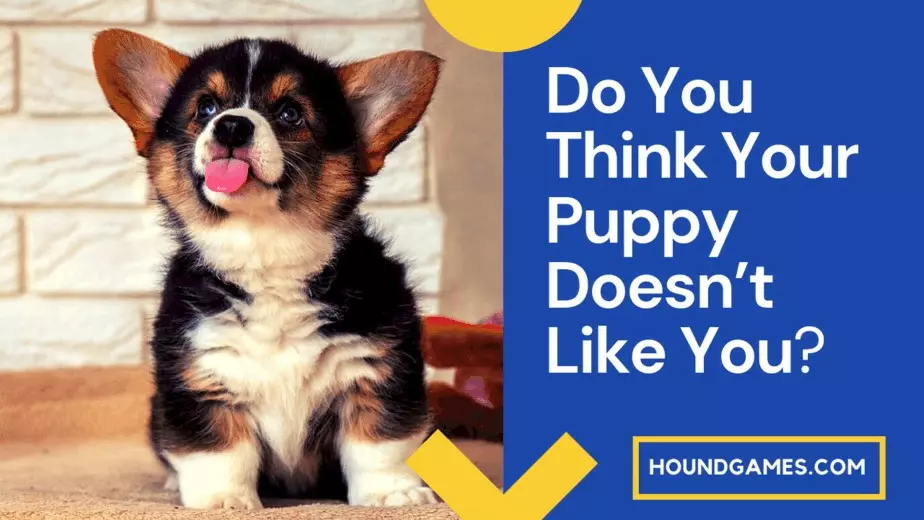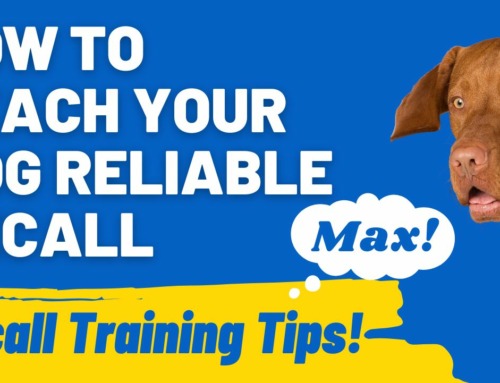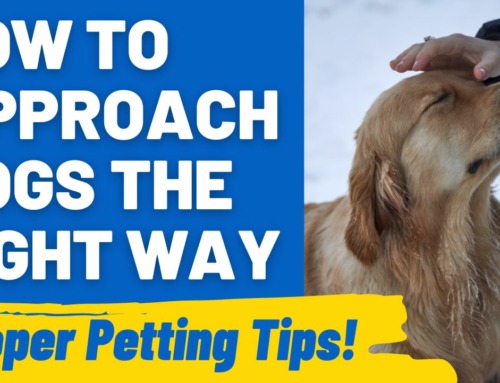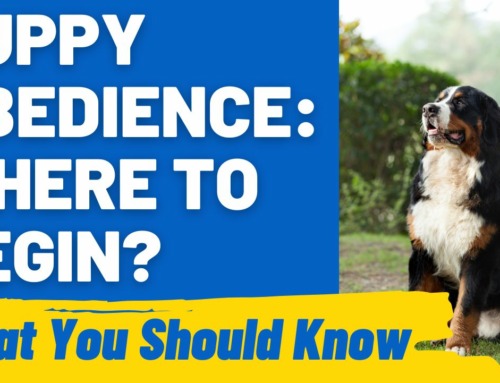A new puppy is usually a source of joy and excitement. Most of us fall in love from the first whiff of puppy breath, and we just want to love them, care about them, and cuddle them! But what happens if your puppy just doesn’t seem interested?
From ignoring you, to fighting against being picked up, to actively running away from you and cowering in a corner, having your puppy act like they don’t return your affections can feel a bit like being rejected.
It can also leave you confused and wondering what you may have done wrong and how to fix it. And if your puppy actually doesn’t like you!
Luckily, dogs’ urge to bond with us is literally built into their genome. So if you start by understanding what’s really going on with your puppy, you can win back their affections in no time.
Does your puppy really not like you?
A puppy that avoids, ignores, or even hides from their owner might be doing so for several reasons, and it’s essential to identify the cause.
For instance, a puppy might appear not to like you because:
-
They have been abused or feral and are afraid of people in general.
-
They have lost trust in you because they have been punished for something they did not understand. Or, they have been frequently forced to do something they don’t want to do, like getting into a crate that they don’t have positive associations with.
-
They are single-person dogs and have made their primary bond with somebody else in the family. Especially if they become possessive and want to resource guard that family member.
-
They have not been well socialized and do not trust new people (if you just purchased or adopted a new puppy).
-
They find you boring and distant. If you tend to work long hours and come home tired and don’t take the time to play with your puppy and build a bond, sometimes your puppy may choose to make their primary bond with somebody who interacts with them more. This might be with somebody who is home more often or with another dog playing with them.
From this list, we can see that avoidant, reactive, or even aggressive behavior that may look like your puppy doesn’t like you can actually be a sign of something else going on.
Once you have identified what might really be going on with your puppy, you can start the process of building a bond that will last a lifetime.
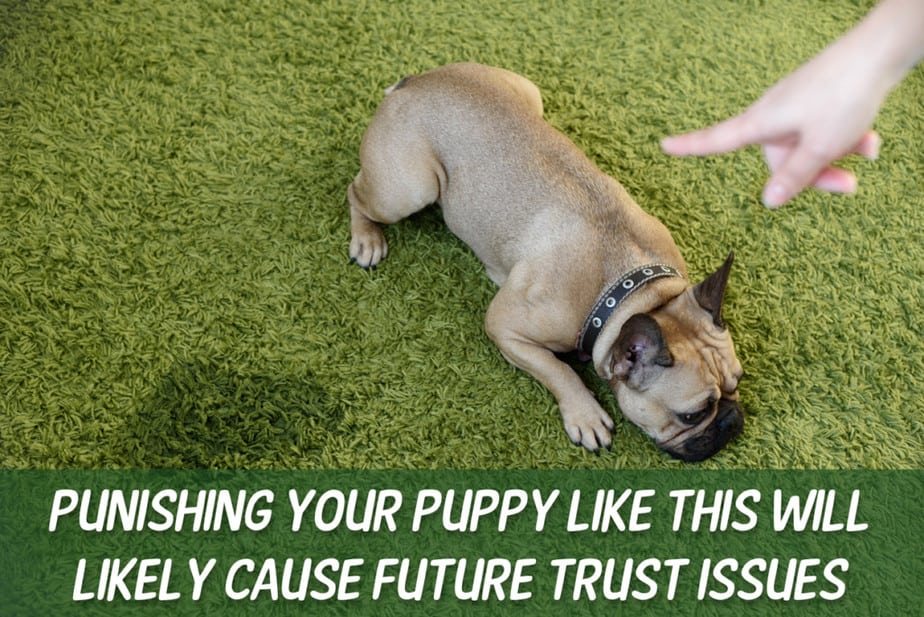
How to make your puppy like you
Depending on why you think your puppy doesn’t like you, there are different approaches to take to fix the problem.
1. Making a scared puppy like you
If your puppy is fearful or avoidant because of previous bad experiences, do not force the issue. This same advice applies if you have a new puppy who is not socialized and doesn’t trust you.
We also have a post on if your puppy is scared of you here for you to read.
Allow them a safe space away from too much busyness or noise to retreat if they feel overwhelmed. Don’t insist on petting or touching them if they aren’t comfortable with it.
Begin building trust by simply passing by their safe space once in a while, throwing down a treat, and then walking away.
To begin with, only do this once or twice a day, then gradually more often so that your puppy associates your presence with something pleasant.
A terrified dog might not want to eat or drink in front of you, so be sure to look away or walk out of the room altogether after you tossed the treat.
The important thing is to keep their interactions with you brief and positive and that you retreat before they feel forced and pressured.
If they are extremely afraid, or fear-aggressive, time your retreats so that you move away at the moment where the dog stops reacting.
This could be a split second where they stop growling or shaking, or perhaps they stop moving away when you approach.
In that second, turn on your heel and walk away. The message is that when they act less anxious about your approach, you will immediately reduce the stress by moving away.
Over time this should encourage trust, and your puppy should come to you on their own, in their own time. Be careful not to make a fuss, as this can scare them further.
2. Making a puppy that has associated you with something negative like you again
Supposed you once lost your temper with your puppy when they ran across a busy road and scolded them when they came back.
Or perhaps somebody told you to use an e-collar or some other punishment to stop a particular frustrating behavior.
Another common one is forcing your dog to do something like get in the crate, rather than using positive enforcement to make it a good experience.
For some sensitive and handler soft dogs, this kind of thing can make them lose trust in you. They begin to act avoidant and sometimes appear to ignore you altogether. Other dogs will become shut down and depressed.
In this situation, like with the fearful dog, you will need to focus on rebuilding trust with your puppy and making yourself something positive again.
When it comes to disciplining your puppy, it’s vital you do so in a positive way to ensure you keep a strong bond with your dog.
To rebuild trust with your puppy, start by using these techniques:
-
Throwing down treats in a way similar to what is mentioned above for fearful dogs.
-
Begin clicker training to make all activity reward-based rather than punishment-based.
-
Make a plan to avoid situations that cause you frustration and anger. If your puppy likes to run away from you, don’t let them off-leash until you have trained a 100% safe recall.
-
Be dramatic in how you praise your dog. Make a big fuss about every little thing they do right to build confidence. Let them know they are the best thing ever!
-
Do not force your puppy to do things they don’t like as far as possible. Instead, use food or a toy to lure them into the behavior you want. In cases where it’s something that makes them uncomfortable, like clipping toenails, then invest in the time to desensitize your dog.
3. Dealing with a puppy who has bonded with somebody else
Occasionally, certain breeds like the Shar-Pei will become particularly close to one family member and ignore everybody else.
Similarly, suppose you are at work all day, and your puppy’s only other companion is another dog or somebody who is home. In that case, they may choose to bond with the companion that is there more than with you.
Puppies with a high play drive are more likely to bond with whoever is playing with them the most and find this person the most interesting.
The good news is that for this kind of dog, the cure is relatively simple.
One only has to be as interesting as possible!
Start by throwing down threats and move on to clicker training to stimulate your dog’s mind.
Spend as much time as possible with your puppy. Give loads of praise for good behavior, and be sure to invest effort in their favorite games and exercise.
The more your puppy associates you with rewards and fun experiences, the higher they will rate you on their list of favorite people!
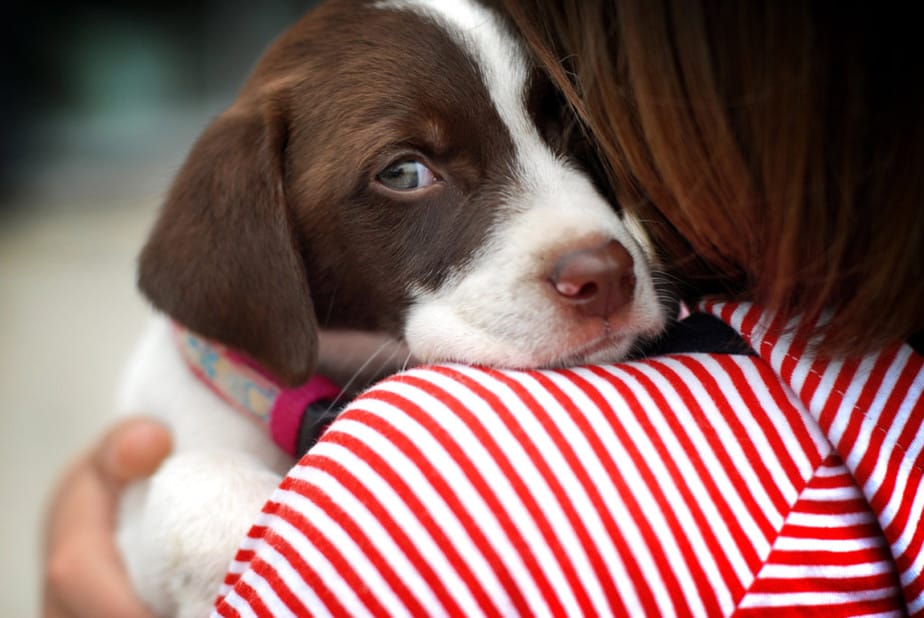
When will my puppy love me?
If you have a troubled or distracted puppy who doesn’t seem to care much about you, never fear. Dogs are predesigned to love people. It’s written in their DNA.
However, every dog is different. A puppy who has had a severely traumatic experience can take up to a few months to really learn to trust and love a person.
On the other hand, a puppy who is simply finding something else more fun can quickly refocus on you as soon as they learn that you’re where all the good stuff is at, and this can happen in a couple of days.
If you’re upset at your puppy, then you may like to read our post: I don’t like my puppy.
Or perhaps, I regret getting a puppy.
Or even, I’m scared of my puppy.
A final word
Puppies rarely don’t like somebody, as they depend on humans for the basic needs, just like human babies.
But they can become fearful, avoidant, anxious, or aggressive, depending on what they learn about people in their early socialization periods.
Because of this, it’s essential to take to create a bond with your puppy, and if you have traumatized dog, to allow things to develop in their own time and trust that they will.

